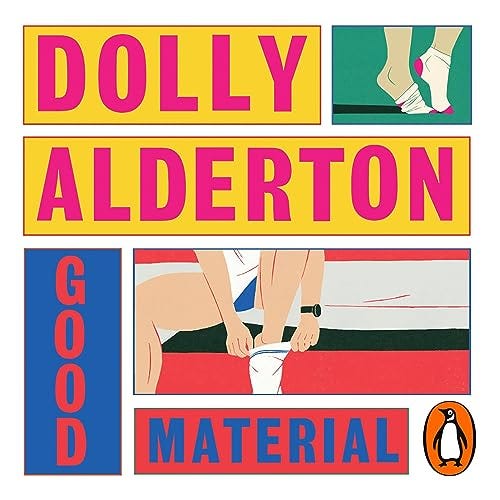Here’s an observation: High Fidelity is a Born to Do It-level debut. By which I mean, both Nick Hornby and Craig David’s first major artistic endeavours were so assured, and reflected the time so much, they have become shortcuts for the age and milieu they describe. Most people could spend a lifetime working and not achieve what that album, and that novel, did for the culture.
And here’s another: both Good Material, Dolly Alderton’s second novel, and Feeling Afraid as if Something Terrible Might Happen, Marcelo Dos Santos’ play, performed by Samuel Barnett and directed by Matthew Xia, are about thirtysomething white male comedians. So I’m thinking: hey, what’s up with that?
Writers are well-equipped to write about other artists, but the stand-up is a particular beast. Let’s be completely honest: by the time you get to your thirties, it gets less and less charming to be a would-be anything, but particularly a comic if you’ve been going away at it since your teens or twenties. This is because, unlike fine art, or wine, or literature or even cooking, everyone feels they are your potential audience, and hardly anyone second guesses themselves about whether or not they’ve found something amusing enough to elicit a laugh. Despite Ofcom warning for the sixth year in a row that tv comedy is ‘at risk’ due to a lack of commissioning and new material on air, the genre is still regarded as a great British export. Both Alderton’s Andy and Dos Santos’ monologue lead are unattached when we meet them: the former, a straight guy and serial monogamist down in the dumps from a recent break up aged 35; the latter, a gay man who is perennial and casual dater who is on the apps. Comedy, therefore, is a perfect analogy for their shared status: a dominant cultural force, somewhat in decline but still the metrestick for so much, with an eager, possibly pathetic desire to please and be centre-stage that they maybe could have grown out of by now.
Reading Hornby’s novel for my book club this year reminded me of how hard it is to pull off a true middlebrow work of art. The world you are depicting has to be strongly familiar, with observations that ring true, but aren’t totally pat, rendered, if it’s literature, in a way that is neither clunky nor anything that might be considered verbose or, perish the thought, pretentious. It is moving without being radical and sincere without, you know, insisting upon itself too much. It is a necessary part of the ecosphere: think Gerwig’s Ladybird or Nicholls’ One Day.
In Ghosts, Alderton doesn’t succeed with making something of the same quality of the works with which she is so fluent. Indeed, the experience of receiving Barry Pierce’s review of the novel seems to have found its way into Andy’s artistic nadir (which, for all its humiliation, also seems to be a kick up the arse for the comic to freshen up his material and challenge himself - curious!). Good Material is the debut I wish she had written. This is not because writing a good second novel to follow up a meh first one is a bad thing, but rather because it feels as though Alderton simply wasn’t ready the first time around. Good Material owes a lot to the Hornby voice (and it is interesting to me that Dolly is more capable of writing from the perspective of a bloke than anyone who lives south of the river Thames) while being structured like the Gotye song ‘Somebody That I Used to Know,’ Kimbra feature and all. The audiobook is enjoyable and I am mainly avoidant when it comes to listening to fiction, but Arthur Darvill and Vanessa Kirby are unsurprisingly convincing in their respective portions.
However, both Alderton and playwright Dos Santos’ choice of work for their protagonists is a form of playing it safe, by playing it familiar. Neither text reaches a true high or remarkability and I think it’s because the starting position of their characters is too easily surmised from the narrative making a point of these men being out of their railcard years and still trying to make people take them seriously by making them laugh.



